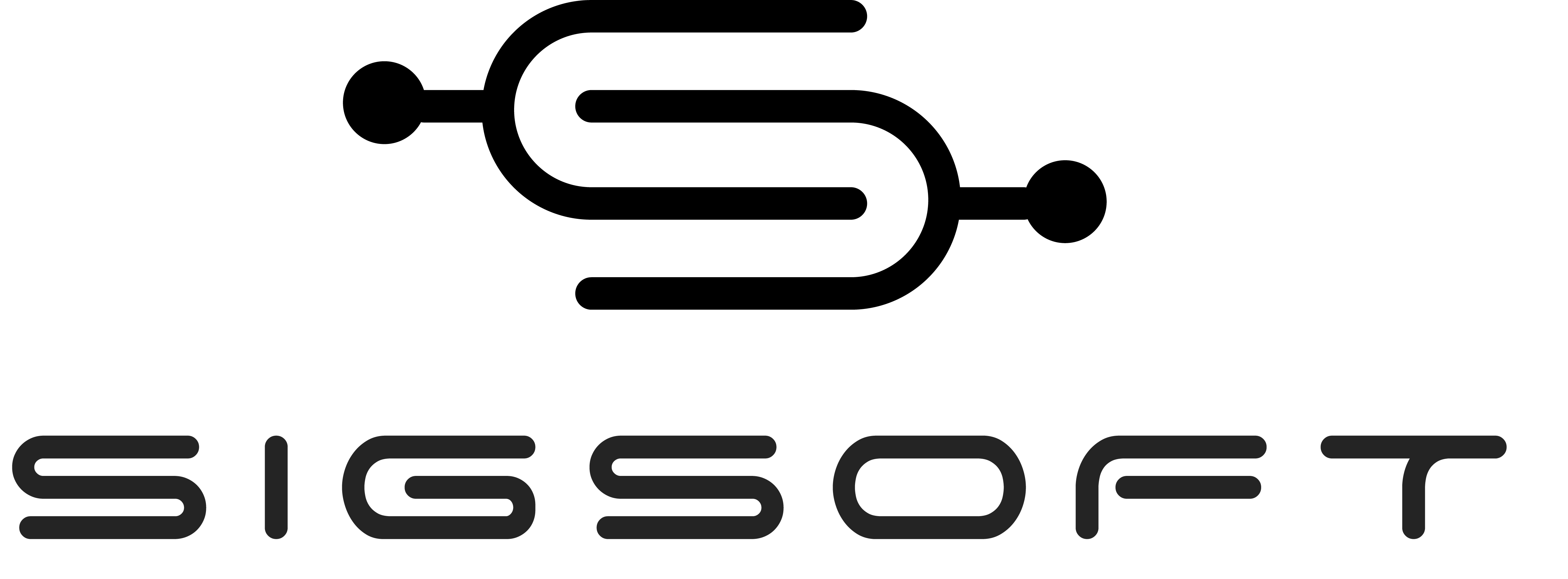 Co-Located with:ICSE26
Co-Located with:ICSE26
 Date:
Tuesday, April 14 2026
Date:
Tuesday, April 14 2026
 Location:
Rio de Janeiro (Brazil)
Location:
Rio de Janeiro (Brazil)
 Submission (Extended):
Submission (Extended):
October 27, 2025
Scope
The engineering of green software-intensive systems is critical in our drive towards a sustainable, smarter planet. The goal of green software engineering is to apply green principles to the design and operation of software-intensive systems. Green and self-greening software systems have tremendous potential to decrease energy consumption. Moreover, software can and should be re-thought to address sustainability issues using innovative business models, processes, and incentives. Monitoring and measuring the greenness of software is critical towards the notion of sustainable and green software. Demonstrating improvement is paramount for users to achieve and effect change. Analysis of the sustainability of a specific software system requires software that aids developers in weighing the four dimensions of sustainability---economic, social, environmental, and technical---with their attendant trade-offs. The software engineering community must assume leadership in this important challenge. In this workshop, we will explore the theme of “green software engineering for software sustainability” with a goal towards creating actionable outcomes that will affect how software engineering is practiced and taught in the future, in order to help organizations prioritize their sustainability objectives.
Topics
GREENS 2026 seeks contributions addressing, but not limited to, the following topics related to sustainable software systems and green software engineering:
- Energy-efficient choices for architecture and design patterns, algorithms, data structures, programming languages, language runtime and infrastructure.
- Architectural implications (architectural tactics, architectural styles, design patterns and anti-patterns) for green and sustainable software
- Practices for sustainability-aware software engineering
- Metrics and measures for sustainability-aware software engineering
- Sustainability-aware architectures in context (e.g., cloud-edge continuum)
- Teaching and training of skills and competencies in sustainability-aware software engineering
- Sustainable computing from a software engineering and software-intensive system perspective
- Applied, or experimented with, software engineering methodologies at all levels (from requirements elicitation to architecture design, coding, testing, and maintenance)
- Meta-analyses, and syntheses of studies to build theories on green and sustainable software; conceptual reflections related to software sustainability
- Progress on the various dimensions of software sustainability and their interplay
- Software adaptation for sustainability
- Tools to support sustainability-aware decision-making
- Sustainability of emerging computing technologies (AI systems, edge devices, generative AI-enabled applications)
- Green AI, lighter, less data-intensive, and less energy-consuming AI models and architectures
- Sustainable Large Language Models (LLMs) for software code
- Green Agentic AI
- Reduction of software organizations’ compute-heavy workloads
- Cloud and energy efficiency
- Standards on the environmental sustainability of software and AI software
Important Dates
- Paper Submission:
20 Oct 202527 Oct 2025 - Notification: 24 Nov 2025
- Camera-Ready: 26 Jan 2026
- Workshop Date: April 2026
Program
| 9:00-10:30 | Technical Session 1 | Workshop opening / Pitch Session 1 |
|---|---|---|
| 9:00 - 9:05 |
Workshop opening Session chairs: Rick Kazman, Karthik Vaidhyanathan, and Elisa Yumi Nakagawa |
|
| 9:05 - 10:30 |
Pitch Session 1 (5-minute pitch of each paper) Session chair: Karthik Vaidhyanathan Pitch 1: Integrating Green Software Practices into Scrum: A Catalog of Measures and Systemic Challenges A. Gidionova; T. Jordine Pitch 2: Making Sustainability Visible in Agile Practices: A Vision for Team‑Level Design Decision‑Making M. Adil; P. Gregory Pitch 3: Energy Consumption of Dataframe Libraries for End‑to‑End Deep Learning Pipelines - A Comparative Analysis P. Kumar; A. Imran; T. Kosar Pitch 4: CHAINS - Collaborative Hub for Advancing Innovative and Sustainable Software Supply Chains G. Sunyé; M. Eler; D. Cordeiro; T. Le Calvar; V. R. Carvalho; F. K. G. Amorim; M. Morandini Pitch 5: Towards a Taxonomy of Sustainability Requirements for Software Design M. Roy; N. Deb; N. Chaki; A. Cortesi Pitch 6: Integration of Green Coding into Management Frameworks - An Integration Outlook D. Junger; V. Wohlgemuth Pitch 7: The Impacts of Artificial Intelligence throughout the Software Development Life‑cycle on Sustainability: A Mixed‑method Study F. Iqbal; M.A. Khan; O. Weerakoon; S. Oyedeji; J. Porras Pitch 8: A Study on the Energy Efficiency of an Autonomous Rover A. Mihu; I. Malavolta Pitch 9: Learning to Be Green: A Reinforcement Learning Agent for Sustainable Microservice Allocation in Cloud Computing C. Costa; A. Trajano; V. Ferreira; V. Estevam; M. Paixao Pitch 10: Injecting Sustainability in Software Architecture: A Rapid Review M. Funke; P. Lago Pitch 11: Exploring the Use of Generative AI for Sustainable Software Requirements Elicitation V.T. Bathala; J. Gross; S. Ouhbi Pitch 12: Transpiling with LLMs for Energy Efficiency J.P. Fernandes; A. Chasmawala; B. Zlenko; M. Kassab Pitch 13: An Empirical Study of Energy Efficiency Monitoring for Complex Container‑Based Systems A. Koufakis; C. Poetoehena; T. van Engers; A.M. Oprescu Pitch 14: On the Relation Between Technical and Environmental Sustainability - A Systematic Literature Review J.B.G. Polo; C. Tessa; P. Avgeriou Pitch 15: Not All Local LLMs Are Equal: A Benchmark of Energy and Performance S. Cunha; F. Ribeiro; L. Cruz; J. Saraiva |
|
| 10:30-11:00 | Coffee break | |
| 11:00-12:30 | Technical Session 2 |
Pitch Session 2 (5-minute pitch of each paper) Session chair: Elisa Yumi Nakagawa Pitch 16: The Impact of External Libraries on Software Energy Efficiency and Sustainability N. Chaudhry; S.K. Lawal; S. Oyedeji Pitch 17: Beyond Energy Consumption: Accurate Emission Factors for Production Sites J. Jung; P.O. Antonino; T. Kuhn Pitch 18: Can We Measure What We Ignore? Rethinking the Individual Dimension of Software Sustainability in Digital Health J.S. Herbert; L.R.E. da Silva; M.F. Franco; I.C.S. da Silva Pitch 19: Operationalizing Sustainability through Non‑Functional Requirements: A Domain‑Oriented Model for Biomedical Software L.R.E. da Silva; M.A.G. de O. Maia; J. Herbert Pitch 20: METRION: A Framework for Accurate Software Energy Measurement B. Weigell; S. Hornung; B. Bauer Pitch 21: Software Library Energy Meter (SLEM): An Automated Energy Measurement Tool for Software Libraries Akilesh P; Shivadharshan S.; R. Chattaraj; S. Chimalakonda; V.S. Sharma; V. Kaulgud Pitch 22: Integrating API Energy Profiling into Developer Workflows: The VerdeFlow Prototype M.B. Joof; A. Khan; S. Oyedeji; J. Porras Pitch 23: Bridging the gap between industry and academia: sustainability in LLM‑assisted software engineering M. Kirkeby; P. de Reus; A.-M. Oprescu; K. Pronk; Q. Zhao; F. Castor; J.P. Fernandes Pitch 24: Graphical Interface Model for Empowering Web Application Users to Make Sustainable Choices: a Technology Acceptance Study G.M. Bonazzi; J. Ammendola; E. Guerra |
| 12:00-12:30 | Breakout participants into groups for discussing 3~4 topics | |
| 12:30-14:00 | Lunch | |
| 14:00-15:30 | Technical Session 3 |
Keynote Session chairs: Rick Kazman |
| 14:00 - 15:30 |
Keynote: Henry Muccini (University of L'Aquila,
Italy) Summary: XXXXXXX Short Bio: XXXXX |
|
| 15:30-16:00 | Coffee break | |
| 16:00-17:30 | Technical Session 4 | Discussion, Presentation of results, and Closing session |
| 16:00 - 17:00 | Breakout participants into groups for discussing 3~4 topics (Continuation) | |
| 17:00 - 17:20 | Presentation of resulting discussions | |
| 17:20 - 17:30 |
Closing session Session chairs: Rick Kazman, Karthik Vaidhyanathan, Elisa Yumi Nakagawa |
|
| 19:00 | Social event |
Submission Guidelines
Participants are invited to submit three types of contributions:
- Emerging research papers (up to 8 pages): These describe contributions offering novel research results, addressing challenging real-world problems with innovative ideas. Submissions should clearly describe the challenges and problems tackled, the relevant state of the art, the solution being offered, and the potential benefits of the contribution, from an academic or industrial perspective.
- Position papers (up to 5 pages): Contributions outlining forward-looking ideas or thought-provoking reflections that call for further discussion and research in the community. These describe a specific position or opinion of the authors or provide a well-reasoned and motivated vision.
- Extended abstracts (up to 2 pages): These abstracts propose novel research topics for discussion in the community, addressing challenging problems from an academic or industrial perspective. The motivation for the topic is grounded in the literature or practical experience. These are free of article processing charge (APC).
All papers must be submitted electronically via the
HotCRP submission system by
the submission deadline and must not have been published before or be
submitted for review elsewhere while under consideration at GREENS. All
submissions must be in PDF format and conform, at time of submission, to the
official
“ACM Primary Article Template”, which can be obtained from the ACM Proceedings Template page. LaTeX users
should use the sigconf option, as well as the review (to produce line numbers
for easy reference by the reviewers). To that end, the following LaTeX code
can be placed at the start of the LaTeX document:
\documentclass[sigconf,review]{acmart}.
Submissions must strictly conform to the ACM conference proceedings formatting
instructions specified above. Alterations of spacing, font size, and other
changes that deviate from the instructions may result in desk rejection
without further review. All papers will go through a
single blind submission process and will be reviewed on the basis of
technical quality, relevance, significance, and clarity by the program
committee members. The workshop proceedings will be published in ICSE 2026
Companion proceedings.
Organizing Committee
Steering Committee:
- Patricia Lago, Vrije Universiteit Amsterdam (Netherlands)
- Rick Kazman, University of Hawaii (USA)
Workshop Chairs:
- Rick Kazman, University of Hawaii (USA)
- Elisa Yumi Nakagawa, University of São Paulo (Brazil)
- Karthik Vaidhyanathan, IIIT Hyderabad (India)
Web and Proceedings Chair:
- Vincenzo Stoico, Vrije Universiteit Amsterdam (Netherlands)
Program Committee
- Vasilios Andrikopoulos – University of Groningen, Netherlands
- Pablo Antonino – Fraunhofer Institute for Experimental Software Engineering (IESE), Germany
- Rafael Capilla – Rey Juan Carlos University, Spain
- Coral Calero – University of Castilla-La Mancha, Spain
- Fernando Castor – University of Twente, Netherlands
- Shaiful Chowdhury – University of Manitoba, Canada
- Ruzanna Chitchyan – School of Computer Science, University of Bristol, United Kingdom
- Davide Di Ruscio – University of L'Aquila, Italy
- Istvan David – McMaster University, Canada
- Vinicius dos Santos – University of São Paulo, Brazil
- João Paulo Fernandes – New York University Abu Dhabi, United Arab Emirates
- Alcides Fonseca – Large-Scale Informatics Systems Laboratory (LASIGE), University of Lisbon, Portugal
- Olivier Le Goaër – University of Pau, France
- Max Hort – Simula Research Laboratory, Norway
- Maria Kechagia – National and Kapodistrian University of Athens, Greece
- Grace Lewis – Carnegie Mellon University, Software Engineering Institute (SEI), USA
- Silverio Martínez-Fernández – Polytechnic University of Catalonia (Universitat Politècnica de Catalunya - BarcelonaTech), Spain
- Raffaela Mirandola – Karlsruhe Institute of Technology (KIT), Germany
- Henry Muccini – University of L'Aquila, Italy
- Stefan Naumann – Trier University of Applied Sciences, Germany
- Adel Noureddine – University Paris Nanterre, France
- Wellington Oliveira – University of Lisbon, Portugal
- Ana Oprescu – University of Amsterdam, Netherlands
- Fabio Palomba – University of Salerno, Italy
- Jari Porras – Lappeenranta-Lahti University of Technology (LUT University), Finland
- Pooja Rani – University of Zurich, Switzerland
- Ralf Reussner – Karlsruhe Institute of Technology (KIT) / Research Center for Information Technology (FZI), Germany
- June Sallou – Wageningen University & Research, Netherlands
- João Saraiva – University of Minho, Portugal
- Jieke Shi – Singapore Management University, Singapore
- Maria Spichkova – Royal Melbourne Institute of Technology (RMIT University), Australia
- Roberto Verdecchia – University of Florence, Italy
- Yves Wautelet – Catholic University of Leuven (KU Leuven), Belgium

